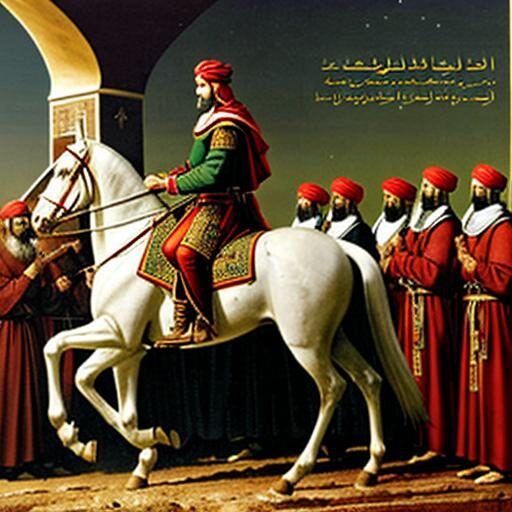Salah ad-Din al-Ayyubi, famously known as Saladin, was not only a revered military leader but also an embodiment of generosity towards His Enemies. Despite engaging in intense battles and conflicts during the Crusades, Saladin’s actions showcased a remarkable level of magnanimity that earned him admiration even from those who fought against him. In this article, we delve deeper into the extraordinary generosity displayed by Salah ad-Din al-Ayyubi towards his adversaries, highlighting the profound impact it had on shaping his legacy.
Treatment of Prisoners of War:
One of the most significant displays of Saladin’s generosity was his treatment of prisoners of war. Unlike the prevailing practices of the time, where captives were often subjected to harsh treatment or held for exorbitant ransoms, Saladin took a different approach. He treated his prisoners with respect and dignity, ensuring their well-being and offering them fair terms of surrender. Many captives were released without any ransom, while others were granted affordable terms for their freedom. This humane treatment of prisoners was not only a reflection of Saladin’s generosity but also fostered a spirit of mutual respect among his adversaries.
Fair and Just Governance:
Saladin’s generosity extended beyond the battlefield and encompassed his governance of conquered territories. After capturing Jerusalem in 1187, he established a fair and just system of governance that prioritized the welfare and protection of the city’s inhabitants. Saladin ensured that Christians were able to practice their faith freely and safely, while also taking steps to preserve the cultural heritage of the city. His administration focused on maintaining peace, stability, and harmonious coexistence, reflecting his deep-rooted commitment to justice and fairness.
Protection of Holy Sites:
Saladin’s generosity was also evident in his approach towards the protection of holy sites, particularly in Jerusalem. Despite the intense conflicts between Muslims and Christians during the Crusades, Saladin respected the sanctity of religious sites and took measures to safeguard them. He prevented unnecessary destruction or desecration of churches and other religious buildings, recognizing the importance of these places to the faithful. This act of generosity and reverence demonstrated Saladin’s commitment to religious tolerance and earned him the admiration of Christians and Muslims alike.
Cultural Exchange and Learning:
Saladin’s generosity was not limited to acts of mercy and diplomacy. He also fostered cultural exchange and learning between different civilizations. Saladin had a deep appreciation for intellectual pursuits and encouraged scholars and intellectuals from various backgrounds to engage in intellectual exchanges. This emphasis on knowledge and cultural dialogue not only enriched the societies under his rule but also fostered an environment of mutual understanding and respect.
Conclusion:
Salah ad-Din al-Ayyubi’s generosity towards his enemies was a defining characteristic of his leadership. His treatment of prisoners of war, fair governance, protection of holy sites, and promotion of cultural exchange are testaments to his extraordinary character and magnanimity. Saladin’s actions transcended the boundaries of conflict and showcased his deep-rooted commitment to justice, compassion, and mutual respect. His generosity earned him the admiration and respect of his enemies, leaving an enduring legacy that continues to inspire generations. Salah ad-Din al-Ayyubi’s remarkable generosity remains a timeless example of leadership and humanity, reminding us of the transformative power of compassion even in the midst of adversity.




